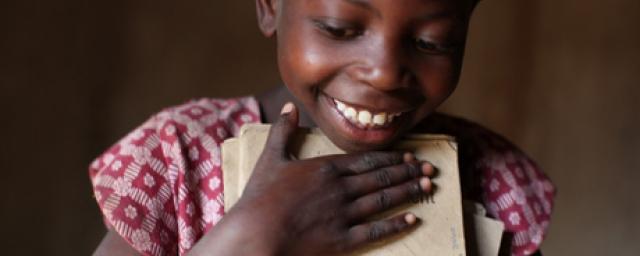
Since 2005, over 3,000 families have received a goat from an Oxfam-funded program in Malawi – a simple initiative that helps vulnerable people to improve their incomes and make their lives better.
Agnes Nangwiri, 8, has been an orphan since she was 4; her older sister Annie, 15, takes care of her.
"It was important to my parents that we all went to school," said Annie, who is head of the family. "We wouldn't miss school when they were around. My brother Edison wants to be an accountant and Agnes is top of her class (out of 70). They are both quite motivated people they wouldn't want to miss school, they like it.
"This year I sold a goat to pay for my school fees this year; I have already paid for two terms. I have also bought enough school uniforms for all of us. I will have to see what happens for the school fees for next term, maybe I will have to sell some maize."
A change for the better
The Oxfam-funded goat distribution program in Malawi started in 2005. Since then over 3,000 families have received a goat and their lives have begun to change for the better. It is a simple initiative that aims to ensure that people have enough food all year round, particularly during the dry season or hungry months – when personal maize harvests have run out and the earth is dry so nothing can grow without irrigation.
A goat is a valuable asset to a vulnerable household; it breeds easily and can produce up to 6 kids a year. Offspring can be sold to help families cope or kept to produce manure, which will improve subsequent harvests. Ideally, within a year, each family will be able to choose to do both: selling goats to improve their homes or pay for school fees; and using manure to increase their maize and vegetable harvests so that they can produce a surplus to sell.